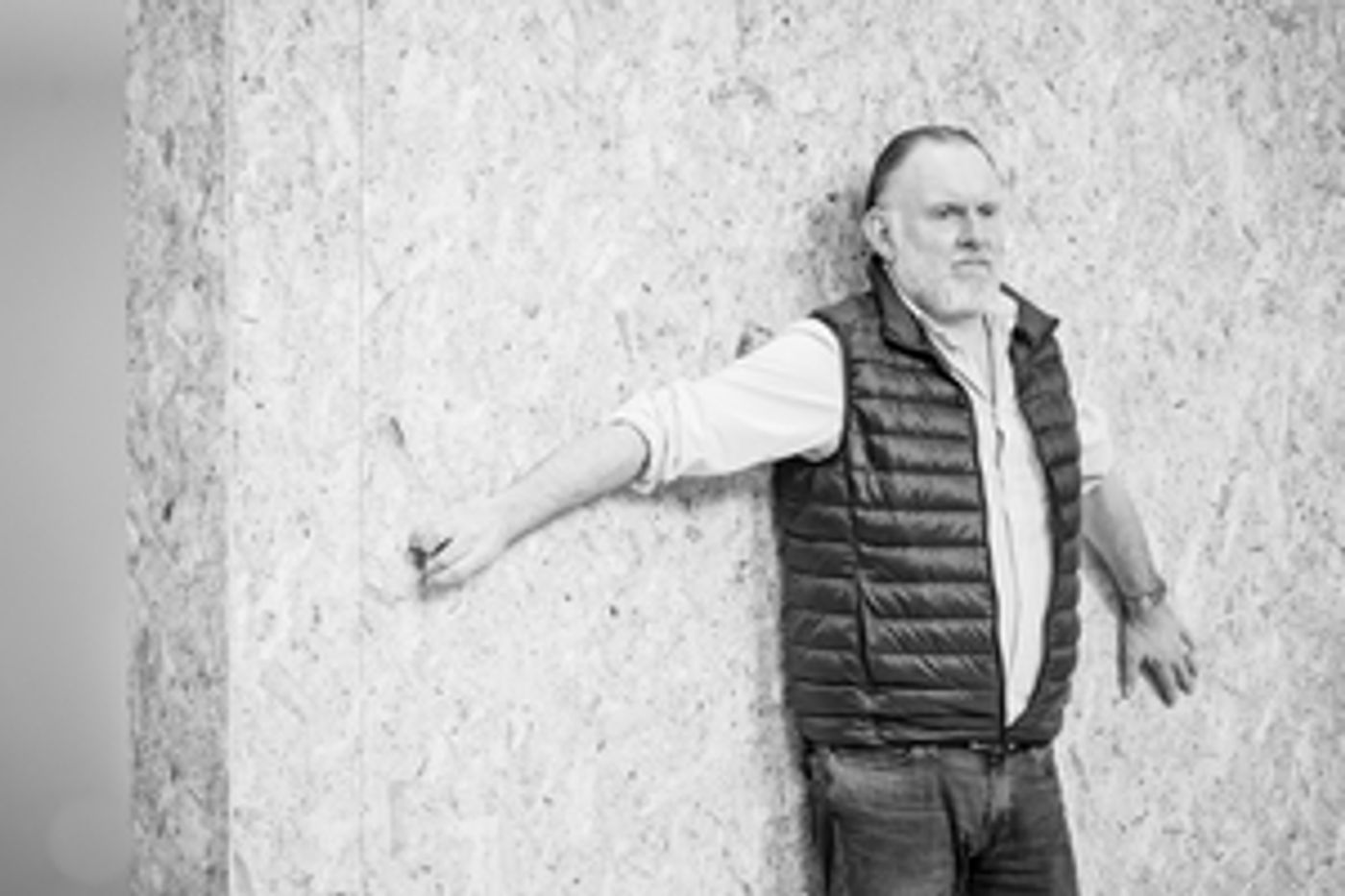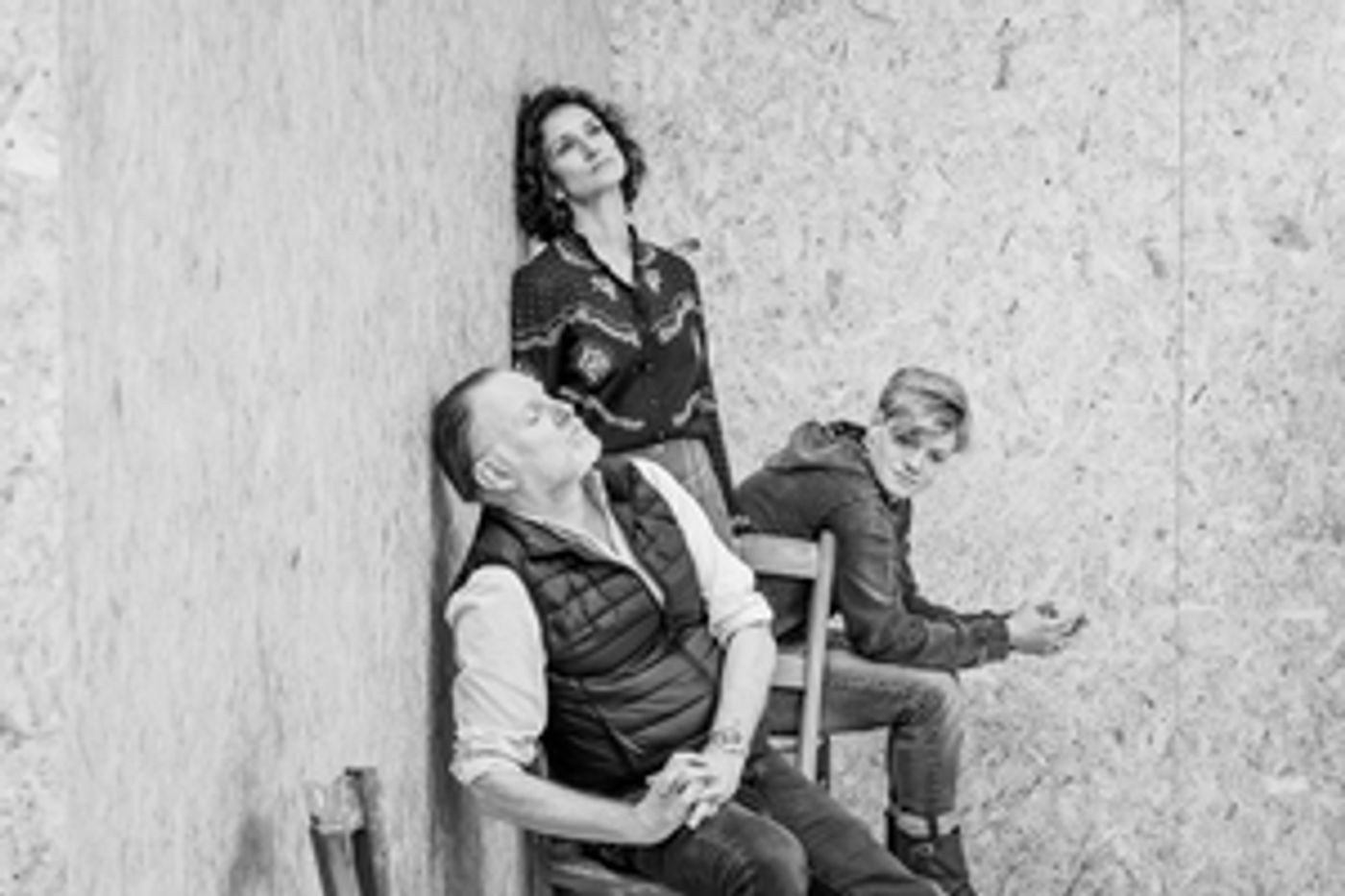Interview: Robert Glenister Talks THE SEAGULL at the Playhouse Theatre

Robert Glenister is currently treading the boards at the Playhouse Theatre in Anya Reiss's adaptation of Chekhov's The Seagull. Starring alongside Game of Thrones's Emilia Clarke and Indira Varma, The Seagull marks Glenister's second production with director Jamie Lloyd.
Glenister's recent theatre credits include Alys, Always at the Bridge Theatre and Pinter Four as part of Lloyd's Pinter at the Pinter season. BroadwayWorld spoke with Glenister about the production, adapting Chekhov, and the importance of star casting for commercial theatre.
When you look back over your career, which shows stand out as being particularly formative?
I suppose theatre wise, it would be when I first went to the National in my early twenties. I didn't go to drama school, so it was a bit of learning as you go. I did Rewrites: A Memoir, a Neil Simon play. Then Michael Rudman was asked to form his own company under Peter Hall, and I was involved in that. In the early days, I learnt a lot from all those I worked with. I was very lucky: I did a sitcom called Sink or Swim in the late 1970s and that gave me a profile.
What do you enjoy about acting in the theatre?
I enjoy the collaboration. Most of the time, it's a level playing field: everyone contributes as much or as little as they want. There's also more time to rehearse, which you don't get in television or film anymore. It's why I keep coming back to the theatre: you get to work with a variety of people and your paths cross. At my age, I don't think it's possible now to walk into a rehearsal room and not know someone. You get to work on new plays and then, as we're doing now, revisit the classics. You never know what theatre will throw at you.
It's a star-studded cast, and Jamie Lloyd is becoming known for big productions - what is the importance of these shows that are turning theatre into more of an event?
I think it's precisely that: it makes it less austere or elitist. Jamie's season has 15,000 seats offered free to state schools and community groups, and more have been released at £15 for people working in the public sector. It's offering the opportunity for everyone to see the show. That Jamie has James McAvoy, Emilia Clarke and Jessica Chastain is key, and once people realise they can afford it, it'll be great. Also, inviting young people in means we're hopefully inviting the new generation of practitioners.
Do you think the industry needs star casting if it's to continue to thrive?
It's an added bonus. That Jamie has three marvellous actors is great, but it's always been the case in commercial theatres that they're needed. It's not as important at subsidised theatres, but to get a wider audience into the commercial it probably is necessary.
How did you first hear about this production of The Seagull?
I did the Pinter at the Pinter season with Jamie, and there I got to hear about the coming season of three plays. We'd never worked together before, and after the Pinter shows he said he wanted to work together again. Then in January this came up, and it's one of those jobs you just can't not do; it's Jamie, the most fantastic cast, and people are excited.
Why do you decide to take on a project?
In an ideal world, it's because one has a liking and desire to do the work. There's a practicality involved: subsidised theatre has to come at a time when one can afford to do it. It gets easier when the kids are grown up and there's not that responsibility, but it's basically just because you want to do the work.
Do you have a rehearsal process?
I don't, and as I've gotten older I've realised that it's just key to learn the material before you arrive. If you can be on top of the words, it frees you up. The rehearsal process here, because it's an ensemble piece, means everyone has been in daily, and so it's been collaborative.
This is an adaptation of Chekhov by Anya Reiss that brings the play into the 21st century. It sits alongside Conor McPherson's Uncle Vanya and just misses Inua Ellams' Three Sisters. Why do we need these interpreters of Chekhov?
I think so long as people are true to the original intentions and characters, there's nothing wrong with it. Chekhov is dealing with the human condition, and that's not changed - it's interesting doing an adaptation, or a version of, that's set more in the modern idiom. I think it's justified and if you can get people into the theatre who might not usually go, then again it's accessible.

Indira Varma and Tom Rhys Harries
Are people intimidated by Chekhov as a playwright?
Yes, people are intimidated by him, Shakespeare, and Ibsen. It's our job to de-intimidate and make it accessible. If you can get people in to see a modern classic, then hopefully they'll come back to another theatre.
How has your perception of the play shifted as the rehearsals continue?
I played the show years ago on the radio and was Konstantin then, which shows how old I am. I've always loved it as a play and I suppose it's more naked emotionally. What's noticeable about this production is that it's about emotion and how people relate to each other, which might not have been apparent in the original.
What is Jamie like as a director and is he interpreting this play as a comedy or a tragedy?
He's great: he has such insight and understanding. Chekhov described all of his plays as comedies, and to an extent they are. The cleverness of this show is how it combines the two - it's funny one minute and in the next you're shocked. Anya's skill lies in these shifts, and Jamie's is in how he brings them out; it's very, very detailed because it's an ensemble piece.
Is Emilia Clarke as nice in person as she seems?
Yes, she's absolutely delightful. She's proper, and I think people will love her.
Can you talk a little about your character, Sorin - and how psychologically involved do you get in a show or character?
I find it quite easy to take the clothes off and go home. Sorin is often played as a nice old duffer, which he is, but there is steel down his spine. He clearly has great love, but, like many characters in the play, he is disappointed. He never found love and he wanted to write, but he never did, hence his encouragement of Konstantin. I just want to get it right, and once that's done, I can relax about it. But I don't intimidate my family with my neurosis.
Is the play asking a question to the audiences (and do we get an answer?)?
I've never thought about it like that, but maybe he's asking if, underneath our show of bravura, we're all full of anxiety and disappointment. That's a running theme throughout his main plays, and maybe that's what audiences come away with. Are we covering up our real feelings with a false confidence?
Do you read reviews?
Sometimes - I don't avoid them. When I started, I used to get all the papers and be deeply offended if I got a dodgy one. But I don't anymore. People are entitled to an opinion and that's all they are.
You mentioned earlier that you didn't go to drama school - do you think an actor would be able to enter the industry today without drama school?
I think it would be very difficult - I had contacts from the National Youth Theatre, and when I finally got a job on television they were very useful with Equity. Drama school is now a way in. How often are you pulled off the street? Drama school offers a showcase that agents visit. It probably is the only way in now.
Who, where and in what would you like to work in next?
I haven't given it a lot of thought; I'd be more than happy to do another play. But television is also having a golden time, and it'd be great to do something new. With Netflix, Sky and all the rest of it, you never know what choices are ahead. I tend to wait and see what comes up.
What changes do you think we'll see in the industry in the next five years?
I think theatre is getting sexy again. There was a time when you saw the commercial theatre as just musicals. There are classic productions happening, and people are interested, but commercial theatre is taking more risks. Lots of interesting writers are now writing for theatre to stay in theatre, and hopefully that will increase.
Why should audiences come and see The Seagull?
If they come with the expectation of seeing a traditional Chekhovian disappointment and emotion, then they will be galvanised into realising it's something for everybody and not just for those who are familiar with the material. They'll hopefully find it accessible and modern.
The Seagull is at the Playhouse Theatre until 30 May
Photograph credit: Marc Brenner
Powered by
|
Videos

